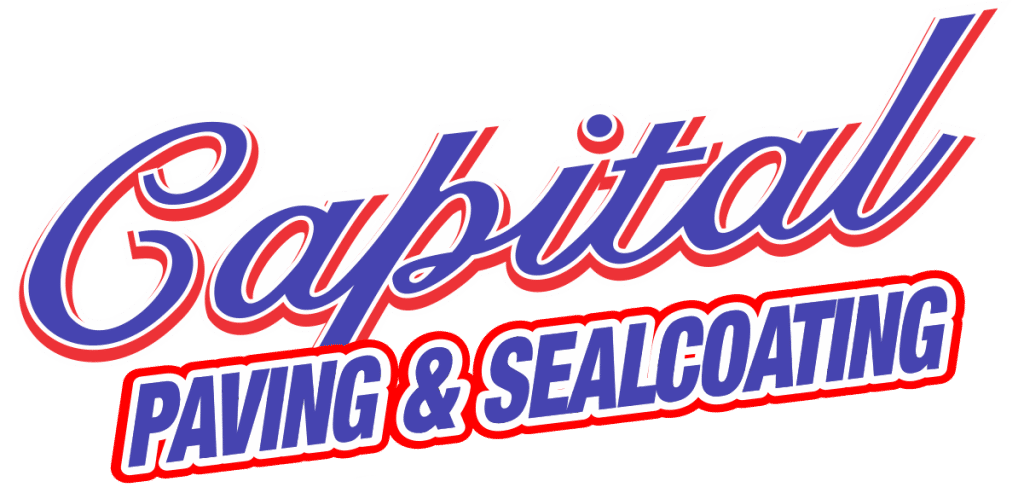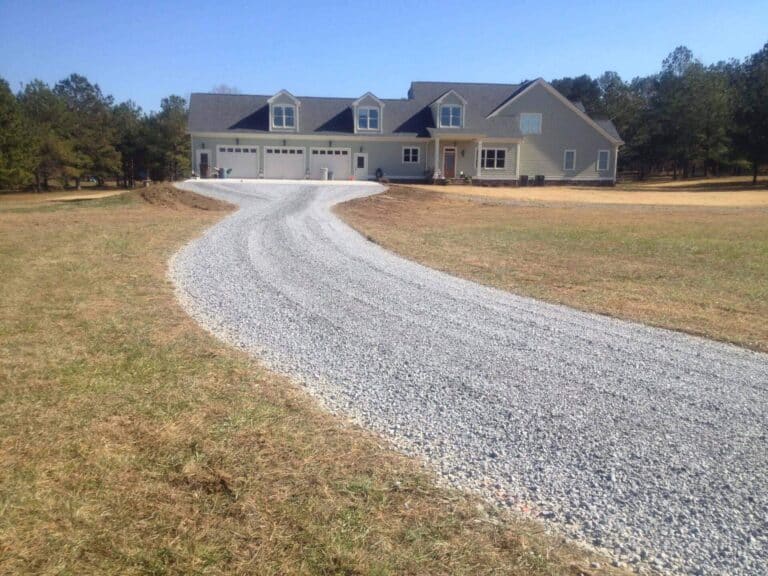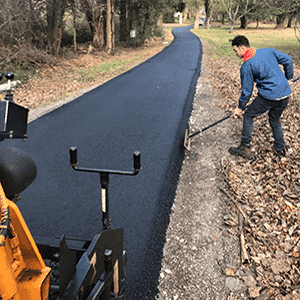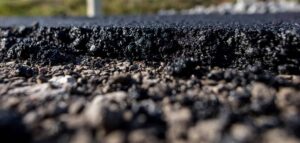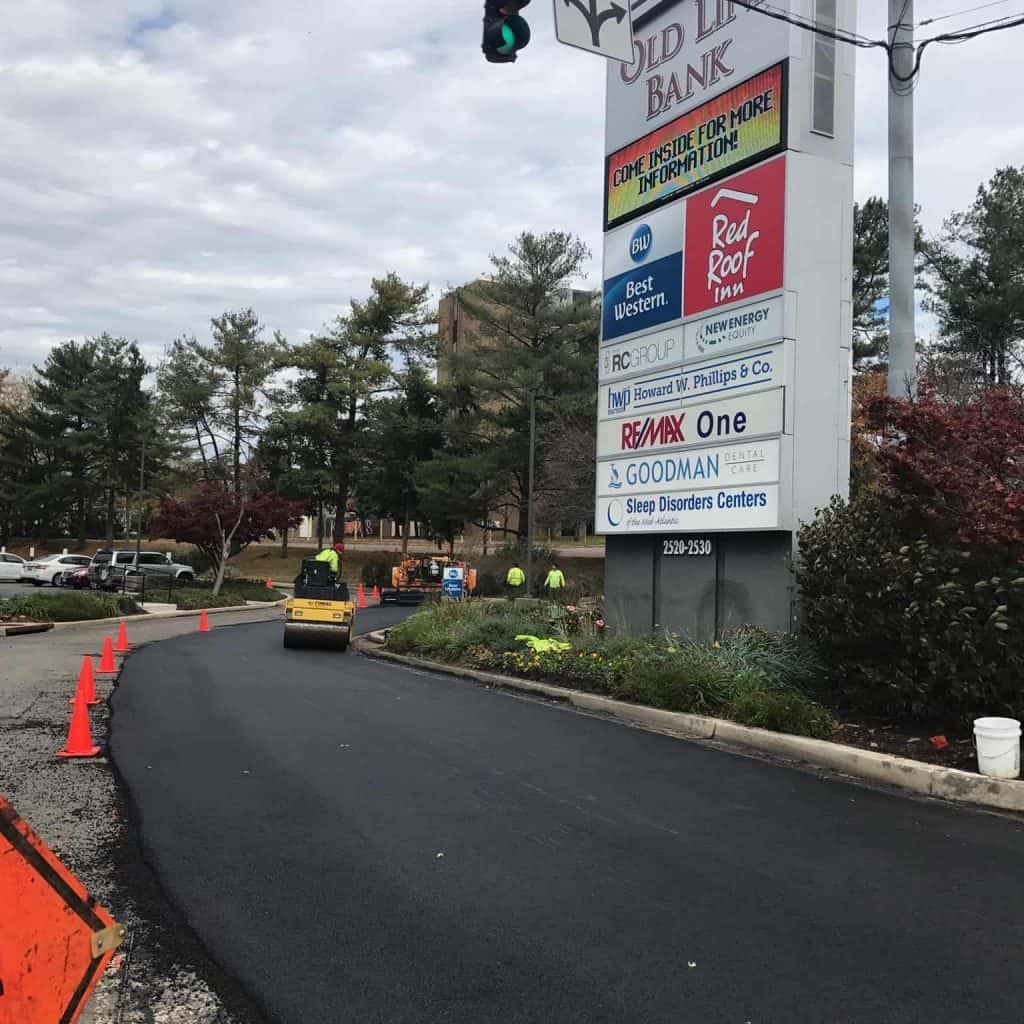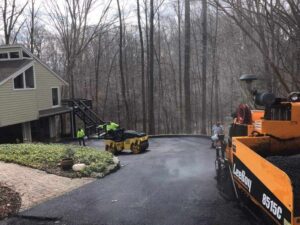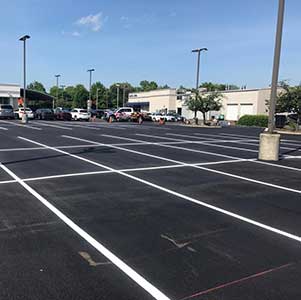You’ve heard the old saying that first impressions are everything. One of the first things your guests encounter when they visit you is your driveway. Often, when it comes to home construction and maintenance, one of the most important- but often overlooked- areas is the driveway.
The material you choose for your driveway impacts the curb appeal of your home as well as the durability and function of the driveway itself. Gravel is a much cheaper option than asphalt. However, the experts at Capital Paving and Sealcoating understand that there are other factors to be considered when deciding between gravel or asphalt, including:
- Appearance
- Climate
- Type of soil
- Usage
We offer both gravel and asphalt as options for paving residential driveways. In this article, we’ll explain the advantages and disadvantages of each to help you decide which is best for you.
Gravel
Gravel is one of the most common materials used for driveways. After all, it is available in a variety of colors and can be used for many things. If you are considering having a gravel driveway installed, here’s what you need to know:
Advantages
Gravel offers several advantages:
First of all, gravel is very budget-friendly. In fact, it is one of the most affordable options on the market. However, gravel driveways must be top-dressed every few years.
Second, gravel is just as easy to maintain as a paved driveway. Environmental conditions such as snow and rainwater may cause gravel to sink, which means it may need to be filled in from time to time. Since it is permeable, gravel is environmentally-friendly and allows groundwater to be replenished.
Third, gravel is diverse and can enhance the beauty of your landscape. No matter what your style, gravel is available in a wide variety of options.
Finally, gravel is one of the easiest driveway materials to install. Laying the gravel and allowing it to settle takes less than a week. You can begin using it as soon as it is installed- you don’t have to give it time to cure.
Disadvantages
There are a few disadvantages of gravel, including the following:
Gravel can be disturbed by climate and snow removal- especially during the harsh winter months. Many times, the best way to make the surface slip-free is to use salt or sand on top of the snow and gravel.
Second, gravel driveways with high usage often develop ruts and sinkholes. These will need to be filled to keep the area functional and aesthetically pleasing.
Finally, gravel driveways can cause dirt, dust, and debris to fly around, especially during dry periods. This means that your vehicles need to be washed more often and the outside of your home may need to be cleaned more frequently.
Asphalt
Asphalt, when properly installed, functions much like concrete. Below are some of the advantages and disadvantages of choosing asphalt for your driveway.
Advantages
The advantages of asphalt are as follows:
Asphalt is more expensive than gravel, but it is a more economical option than concrete or pavers.
Second, asphalt is petroleum-based, so it’s more flexible and less susceptible to damage due to temperature fluctuations and extreme weather conditions.
Third, since it is a flat surface, it is much easier to shovel show off of and keep clean than a gravel driveway.
Finally, with proper care and maintenance, asphalt driveways have a long lifespan. On average, an asphalt driveway will last 12 to 35 years, based on several factors including installation, usage, climate, and more.
Disadvantages
There are a few disadvantages of asphalt compared to other options:
First of all, asphalt is limited in terms of style and color. While it does look nice and compliment the color and tone of most homes, the only option for asphalt is black. If style and color are important, asphalt may not be the best option for you.
Second, asphalt requires maintenance to keep it looking nice and improve the life expectancy of the surface. It will need to be power washed at least twice a year to remove dirt/debris and cracks/holes must be repaired as soon as possible. Also, sealcoating is required every 2 to 5 years.
Finally, since it is petroleum-based, heat causes asphalt to become soft and pliable. This means that extreme heat could cause your asphalt driveway to develop indentations and marks.
Conclusion
Two of the most popular options for residential driveways are gravel and asphalt. While both options are budget friendly compared to options such as concrete or pavers, gravel is the cheapest. However, both have advantages and disadvantages. If you need help deciding the best option to fit your needs and budget, contact the experts at Capital Paving and Sealcoating. We are a family-owned company that has been in operation since 1956 and has served Anne Arundel county in Maryland for more than 20 years. We look forward to helping you with your paving needs.
